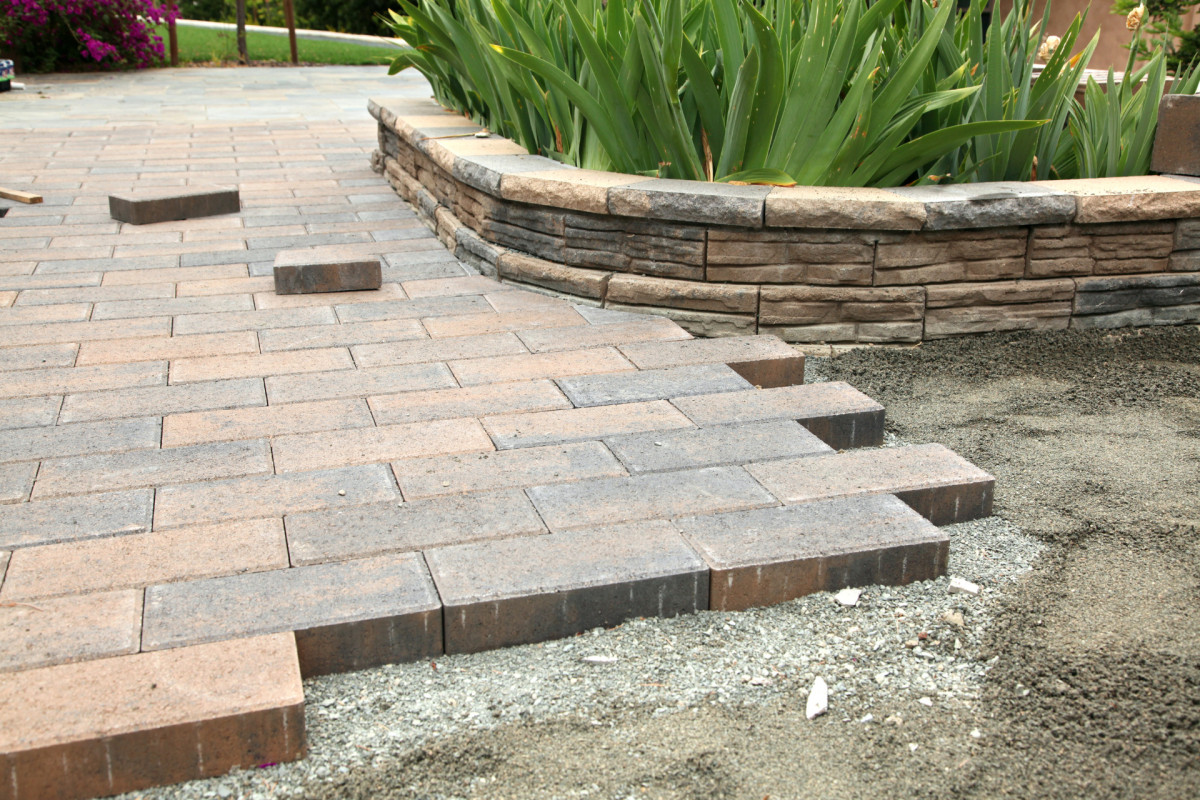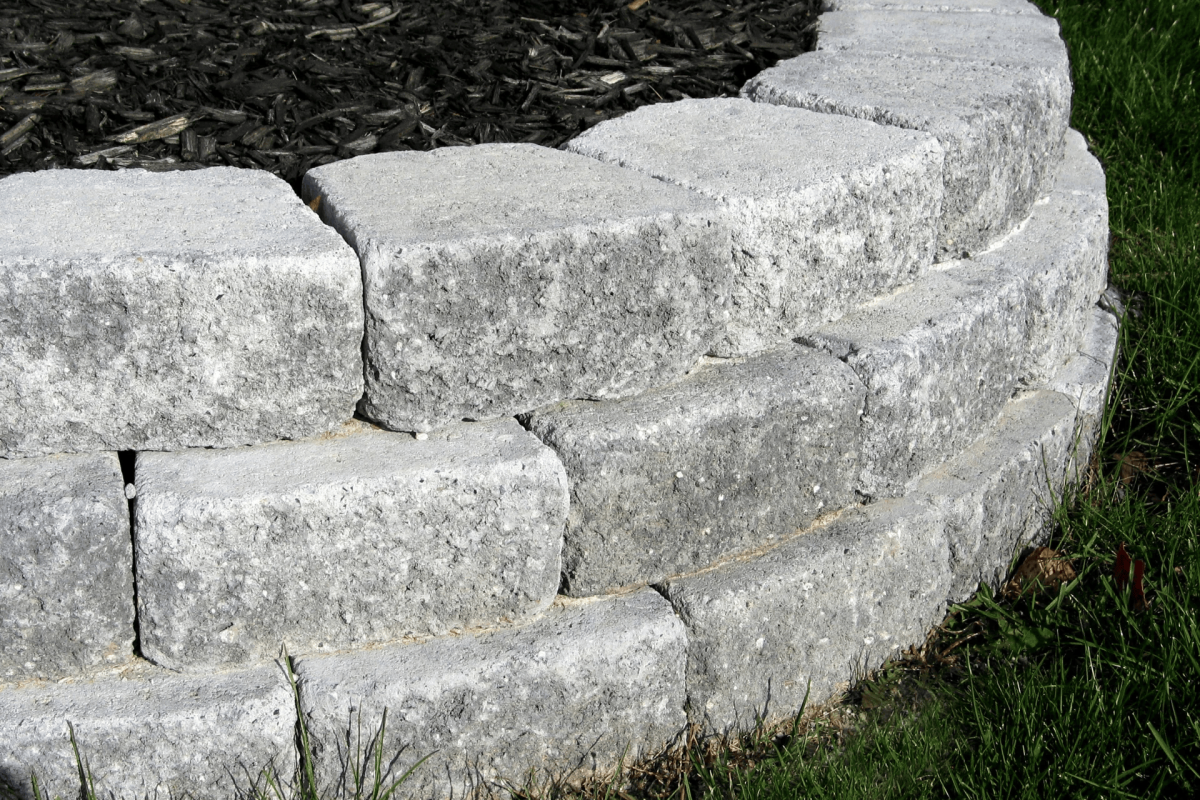As homeowners across northern Illinois prepare their properties for winter, many overlook a critical vulnerability that leads to thousands of dollars in damage each year. Paver patios, outdoor kitchens, retaining walls, and decorative walkways installed during warmer months face significant risk from freeze-thaw cycles without proper winterization.
Landscape professionals throughout Mokena, New Lenox, Tinley Park, and Orland Park report that hardscape damage peaks during the first winter after installation. Homeowners who invested heavily in outdoor living spaces during spring and summer often discover cracked pavers, shifted retaining walls, and deteriorated surfaces come April. Understanding how proper drainage prevents winter water damage and taking protective action before ground freezes saves both money and frustration.
Why Hardscape Features Require Winter Protection
Northern Illinois experiences some of the most challenging conditions for outdoor hardscaping. Temperature fluctuations that swing above and below freezing create relentless expansion and contraction cycles. Water that seeps into joints, cracks, or porous materials expands approximately nine percent when freezing, exerting tremendous pressure that cracks pavers, displaces stones, and damages mortar joints.
Recently installed features face heightened vulnerability during their first winter. Base materials require time to fully settle and compact. Drainage systems need verification under real weather conditions. Sealant applications that protect against moisture penetration often get delayed or overlooked entirely during the rush to complete projects before cold weather arrives.
Salt and de-icing chemicals compound freeze-thaw damage. Many homeowners apply rock salt liberally across paver driveways and walkways without realizing these chemicals accelerate surface deterioration. Salt draws moisture into porous materials where it freezes, causing spalling where the surface layer flakes away. Within just a few winters, beautiful hardscaping can develop pitted, damaged surfaces that require extensive restoration.
Retaining walls face unique winter stresses. Water that collects behind walls and freezes exerts outward pressure that shifts blocks, cracks mortared joints, and causes structural failure. Proper drainage during installation prevents this hydrostatic pressure, but verification before winter ensures systems function correctly.
Essential Pre-Winter Hardscape Protection Steps
Professional paver sealing creates a protective barrier that prevents water penetration while allowing vapor transmission. Quality sealers applied before temperatures drop consistently below 50 degrees protect surfaces through winter while enhancing color and preventing weed growth in joints. This relatively modest investment extends hardscape lifespan significantly and maintains the aesthetic appeal that justified the original installation cost.
Drainage verification becomes critical before ground freezes. Walking properties during or immediately after heavy rain reveals how water flows across pavers, around retaining walls, and through outdoor living spaces. Pooling water indicates inadequate slope or blocked drainage that needs correction. Standing water on paver surfaces or against retaining walls guarantees freeze damage that progresses throughout winter.
Joint sand inspection prevents accelerated deterioration. Polymeric sand used between pavers creates a stable, weed-resistant surface. However, this sand can wash out during heavy fall rains or get displaced during final landscaping activities. Replenishing joints before winter prevents water from flowing beneath pavers where it freezes and causes heaving.
Furniture and accessories removal protects both the items and the hardscape surfaces beneath them. Metal furniture legs can rust and stain pavers when left in place through freeze-thaw cycles. Heavy planters and decorative elements create concentrated pressure points that accelerate cracking.
Outdoor kitchen winterization requires specific attention. Gas lines need proper shutdown procedures. Water supply lines require complete drainage to prevent freeze damage. Countertops, especially natural stone, benefit from sealing before winter. Grill covers and appliance protection prevent moisture accumulation that causes rust and mechanical failure.
Regional Challenges Requiring Local Expertise
Clay soil predominant throughout northern Illinois creates additional hardscape challenges. Clay expands significantly when wet and shrinks during dry periods. This movement stresses hardscape foundations and contributes to settling issues that become apparent after winter. Properties with heavy clay benefit from enhanced base preparation and robust drainage systems that professional installers familiar with local conditions incorporate into designs.
Mature tree roots present ongoing challenges for hardscape stability. As trees grow, root systems expand beneath patios and walkways, causing gradual upheaval. Winter freeze-thaw cycles accelerate this damage, turning minor imperfections into significant problems.
Properties on slopes face intensified drainage concerns. Gravity pulls water toward lower elevations, often directing flow against retaining walls or across paver surfaces. Winter amplifies these issues as ice dams form and meltwater concentrates in problem areas. Strategic drainage solutions including French drains, channel drains, and proper grading prevent winter damage while improving year-round functionality.
How Experience Prevents Costly Mistakes
Companies with extensive hardscape installation and maintenance experience understand how materials perform through northern Illinois winters. This knowledge informs both initial installation practices and appropriate winterization protocols. Newer companies or general contractors without regional experience may overlook critical details that become apparent only after structures survive multiple freeze-thaw cycles.
Bill's Lawn Maintenance & Landscaping has addressed hardscape winterization across the Frankfort area for over 25 years. This longevity provides direct observation of which installation methods, materials, and protection strategies deliver lasting results through harsh winter conditions. Recommendations come from proven experience rather than theoretical knowledge.
Quality equipment and proper technique separate effective winterization from wasted effort. Professional-grade sealers penetrate deeper and last longer than consumer products. Commercial pressure washing equipment removes contaminants without damaging surfaces. Proper application timing and weather monitoring ensure treatments cure correctly before freezing temperatures arrive.
Specialized Services for Outdoor Living Spaces
Recent paver patio and walkway installations require first-winter attention that establishes long-term performance patterns. Beyond sealing and drainage verification, new installations benefit from structural assessment that confirms base materials settled correctly and joints remain stable. Addressing minor issues before winter prevents progressive damage that requires extensive repairs.
Fire pits and outdoor fireplaces need specific winter preparation. Checking for cracks in fire-rated materials, verifying gas line shutoffs, and protecting surfaces from moisture prevents damage and ensures safe operation when warm weather returns.
Outdoor kitchens represent substantial investments requiring comprehensive winterization. Beyond appliance protection, countertop sealing, and plumbing winterization, checking cabinet doors and drawer operation before winter identifies issues caused by settling or moisture exposure.
Supporting Long-Term Property Value
Proper hardscape maintenance preserves property value that outdoor living spaces provide. Real estate professionals consistently note that well-maintained patios, outdoor kitchens, and quality hardscaping increase home marketability and sale prices. Conversely, damaged or neglected features become negotiating points that reduce offers or require expensive pre-sale repairs.
Community standards in established neighborhoods increasingly include substantial outdoor living spaces. Maintaining these features demonstrates property pride and contributes to overall neighborhood appeal. Neglected hardscaping that develops visible damage detracts from both individual property value and community aesthetics.
Acting Before Winter Arrives
The work completed before ground freezes determines whether outdoor living spaces emerge ready for enjoyment in spring or require costly repairs before use. Temperature forecasts show freezing conditions arriving within weeks, making immediate action essential for homeowners concerned about protecting their hardscape investments.
Professional winterization services provide expertise and execution that ensures comprehensive protection. Attempting DIY approaches often misses critical details or uses inappropriate products that provide inadequate protection. The cost difference between professional winterization and spring hardscape repair makes expert service a clear value.
Homeowners seeking hardscape winterization consultation can contact Bill's Lawn Maintenance & Landscaping at 815-205-5541 to discuss their outdoor living spaces and appropriate protection strategies. Taking action now prevents damage that diminishes both function and beauty throughout the coming season.




